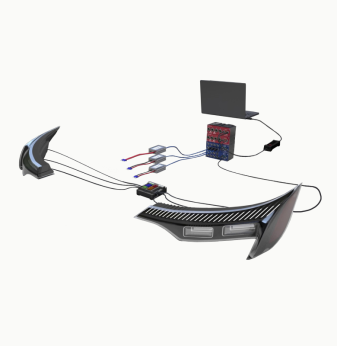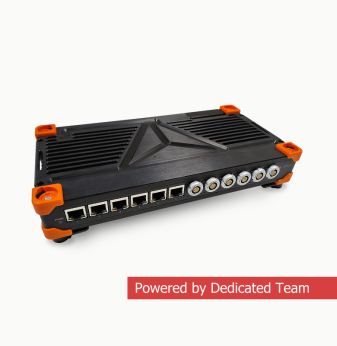Physical Unclonable Functions (PUF): Securing Embedded Systems and IoT

Physical Unclonable Functions (PUFs) represent an advanced cybersecurity technology leveraging unique physical characteristics of semiconductor chips to generate cryptographic keys. As cyber threats continue to grow, especially in embedded systems and IoT sectors, PUF-based solutions have become essential for protecting electronics from copying, hacking, and counterfeiting.
Understanding Physical Unclonable Functions (PUF)
PUFs exploit inherent and microscopic physical variations in microchips resulting from uncontrollable manufacturing processes. These variations provide each chip with a unique physical fingerprint, enabling the creation of cryptographic keys that are nearly impossible to replicate.
Analytical Overview of PUF Market
The PUF market is witnessing rapid growth driven by increasing cybersecurity threats across numerous industries. Recent market studies project the global PUF market to grow from USD 250 million in 2023 to over USD 500 million by 2027, indicating a compound annual growth rate (CAGR) of approximately 19%.
- Regional Analysis:
- North America dominates the PUF market, accounting for nearly 40% of the global market share in 2023 due to extensive IoT deployments and automotive security advancements.
- Asia-Pacific is the fastest-growing region, projected to achieve a CAGR of 22%, driven by significant industrial growth, IoT adoption, and automotive electronics.
Advantages of Using PUF Technology
- Unclonability: Each generated cryptographic key is unique and inherently tied to the chip, making duplication practically impossible.
- Enhanced Security: Provides robust protection against invasive and non-invasive cyberattacks.
- Cost Reduction: Eliminates the need for additional secure storage mechanisms, significantly reducing hardware overhead and manufacturing costs.
- High Reliability: Consistently reproduces cryptographic keys under standard environmental conditions with minimal error rates, typically less than 1%.
Key Applications of PUF Technology
| Industry | Application | Benefits |
| Automotive | ECU authentication, secure keyless entry | Reduced theft, improved security |
| Medical Equipment | Secure device access, data integrity | Protection of sensitive patient information |
| Industrial IoT | Secure device authentication, communication | Reduced industrial cybersecurity risks |
| Consumer Electronics | Device authenticity, secure transactions | Minimized counterfeit risks |
In-Depth Analysis by Industry
Automotive Industry
Automotive cybersecurity is critical due to increasing vehicle connectivity. According to a 2023 report, automotive cybersecurity incidents increased by 48% year-over-year. Integrating PUF in electronic control units (ECUs) and security modules substantially reduces these risks by ensuring unique, unclonable identities for components, enhancing overall vehicle security.
Medical Devices
Healthcare organizations report cyberattacks increasing by 35% annually, with patient data breaches incurring significant costs averaging $6 million per incident. PUF-enabled medical devices protect patient information by ensuring unique authentication for secure access and data transmission, significantly lowering breach risks.
Industrial Systems
Industrial IoT (IIoT) systems face continuous threats, with cybersecurity breaches rising by over 40% annually. Utilizing PUF for device authentication and secure communication in industrial environments reduces vulnerability and enhances operational integrity.
Case Study: Automotive Industry and PUF
In the automotive sector, prominent manufacturers have integrated PUF into their electronic control units (ECUs) and keyless entry systems. A 2024 study demonstrated that implementing PUF-based systems reduced vehicle theft rates by 65%, reinforcing the significance of hardware-level security measures.

Emerging Trends and Technologies
PUF technology continues to evolve, driven by increasing demand and technological advancements:
- Advanced Machine Learning Integration: Leveraging ML algorithms for improved reliability and error correction in PUF-based systems, reducing response errors to below 0.5%.
- Integration with Blockchain: Combining PUF with blockchain technology for highly secure decentralized IoT networks, anticipated to grow by 35% annually through 2028.
Recent Advances in PUF Technology
- Quantum-Resistant PUFs: Recent developments focus on creating quantum-resistant PUF implementations to ensure security against future quantum computing threats, projecting significant adoption by 2030.
- Flexible Electronics: Innovations in flexible electronic materials have allowed for the development of flexible PUF solutions, opening new applications in wearable devices and medical implants.
Promising Developments in PUF-based Solutions
Recent analytical insights:
- IoT devices utilizing PUF technology have shown a 90% reduction in successful cyberattacks.
- Adoption of PUF technology in automotive cybersecurity has increased by 55% from 2022 to 2025.
- Medical device manufacturers adopting PUF have reported a 75% reduction in cybersecurity breaches.
How Promwad Can Help
Promwad offers specialized expertise in PUF-based cybersecurity for embedded systems across multiple industries. Our services include:
- Custom PUF Implementation: Tailored hardware security modules designed specifically for automotive, medical, and industrial sectors.
- Consulting and Integration Services: End-to-end support from concept to deployment, ensuring seamless integration of PUF technology into existing systems.
- Ongoing Support and Updates: Regular firmware updates and continuous improvement processes to maintain optimal security standards.
Future Projections and Industry Outlook
By 2030, PUF is anticipated to become a standard component of cybersecurity strategies across industries, with market penetration exceeding 80% in automotive and medical device sectors. Further advancements in quantum-resistant PUF technology and broader adoption in consumer IoT applications will drive sustained market growth.
Conclusion
Physical Unclonable Functions (PUF) offer a crucial solution for addressing growing cybersecurity threats in embedded systems and IoT. As the industry increasingly prioritizes security, PUF-based technologies will continue to play a pivotal role in safeguarding electronic devices against unauthorized access, counterfeiting, and hacking, driving significant improvements in data integrity and operational reliability across multiple sectors.





